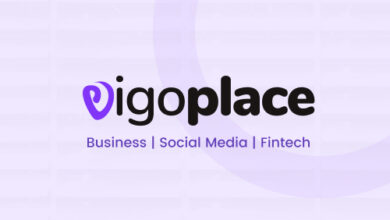
Blockchain Beyond Cryptocurrency
Blockchain Beyond Cryptocurrency, blockchain technology is originally designed to support cryptocurrencies like Bitcoin, has evolved far beyond its initial use case. Its decentralized and tamper-resistant nature makes it a versatile tool with applications across various industries. Beyond cryptocurrency, blockchain is being leveraged for real-world applications that enhance security, transparency, and efficiency in diverse sectors, study more about blockchain technology with Wiki Pedia and make more research about technology with Info teck

Areas where blockchain are being use : Blockchain Beyond Cryptocurrency
blockchain technology is proving to be a transformative force across various industries beyond cryptocurrency. Its decentralized, secure, and transparent nature addresses longstanding challenges in fields such as supply chain management, healthcare, voting systems, financial services, identity management, intellectual property, real estate, and energy trading.
1. Supply Chain Management: One of the most promising applications of blockchain technology is in supply chain management. By utilizing a decentralized ledger, companies can create transparent and traceable supply chains. This allows for real-time tracking of goods from the manufacturer to the end consumer, reducing the risk of fraud, counterfeiting, and errors. Every transaction and movement in the supply chain is recorded on the blockchain, ensuring an immutable and auditable history.
2. Healthcare: Blockchain is transforming the healthcare industry by addressing issues related to data security, interoperability, and patient privacy. Patient records stored on a blockchain can be accessed securely by authorized parties, reducing the risk of unauthorized access and data breaches. Additionally, the decentralized nature of blockchain ensures that patient data is not held by a single entity, enhancing interoperability between different healthcare providers.
3. Voting Systems: Blockchain has the potential to revolutionize the electoral process by creating secure and transparent voting systems. By recording votes on a blockchain, governments can prevent fraud and ensure the integrity of elections. Each vote is encrypted and stored in a tamper-resistant manner, providing a verifiable and unchangeable record of the election results. This could significantly improve trust in democratic processes.
4. Financial Services: While blockchain’s association with cryptocurrency is well-known, its applications in traditional financial services go beyond that. Blockchain can streamline processes such as cross-border payments, securities trading, and settlements. Smart contracts, self-executing contracts with the terms of the agreement directly written into code, can automate complex financial transactions, reducing the need for intermediaries and minimizing the risk of errors.
5. Identity Management: Blockchain offers a secure and efficient solution for identity management. Instead of relying on centralized databases vulnerable to hacking, individuals can have control over their digital identities through blockchain. This can reduce the risk of identity theft, streamline identity verification processes, and provide a more user-centric approach to managing personal information.
6. Intellectual Property and Royalties: Artists, musicians, and content creators often face challenges in protecting their intellectual property and receiving fair compensation. Blockchain can be used to create transparent systems for tracking the ownership and usage of intellectual property. Smart contracts can automatically execute royalty payments when content is used, ensuring a fair and efficient distribution of earnings.
7. Real Estate: In the real estate industry, blockchain is being applied to streamline property transactions, reduce fraud, and enhance transparency. Property records stored on a blockchain are secure and easily accessible, simplifying the process of verifying ownership and conducting title searches. Smart contracts can automate aspects of real estate transactions, such as the transfer of ownership and payment processing.
8. Energy Trading: Blockchain facilitates peer-to-peer energy trading by allowing consumers to buy and sell excess renewable energy directly to one another. Through blockchain-based platforms, individuals can participate in decentralized energy markets, promoting sustainability and reducing reliance on centralized energy providers. This disintermediation can result in a more efficient and cost-effective energy distribution system.
Why Blockchain? : Blockchain Beyond Cryptocurrency
Blockchain technology offers several key advantages that make it attractive for a variety of applications:
- Decentralization: Traditional systems rely on a central authority, which can be a single point of failure or susceptible to corruption. Blockchain distributes control across a network, reducing the risk of manipulation and enhancing trust.
- Immutability: Once information is added to the blockchain, it is extremely difficult to alter. This immutability ensures the integrity of the data, making it resistant to fraud and tampering.
- Transparency: Every transaction recorded on the blockchain is visible to all participants in the network. This transparency promotes accountability and trust among users.
- Security: Blockchain uses advanced cryptographic techniques to secure data. The decentralized nature of the network also makes it more resistant to hacking attacks compared to centralized systems.
- Efficiency and Automation: Smart contracts, which are self-executing contracts with the terms directly written into code, enable automation of processes. This reduces the need for intermediaries, streamlining operations and potentially lowering costs.
- Trustless Transactions: Users can transact directly with each other on a blockchain without the need for intermediaries. This “trustless” nature is achieved through consensus mechanisms that validate transactions.
- Global Accessibility: Blockchain operates on a global scale, allowing participants from different parts of the world to engage in transactions and share information seamlessly.
- Cryptocurrencies: While blockchain extends beyond cryptocurrencies, digital currencies like Bitcoin and Ethereum leverage blockchain technology for secure and decentralized financial transactions.
Discover more from Infotech
Subscribe to get the latest posts sent to your email.





Your point of view caught my eye and was very interesting. Thanks. I have a question for you. https://accounts.binance.com/en/register-person?ref=JHQQKNKN